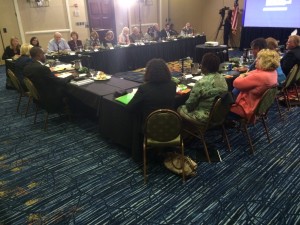
Florida was not among the states that shared in the $157 million in charter school grants announced this week by the federal government, but the message that went out with the money might still resonate here.
In a letter to state education officials, the U.S. Education Department called for better supervision of charter schools and their sponsors — an issue that’s been getting attention from Florida’s charter school advocates and district authorizing offices.
“Effective monitoring of charter authorizers is critical for both reducing poor management practices and increasing the number of high-quality charter schools operating across the United States,” top federal education officials wrote in their letter.
Improving screening and supervision of charter schools was one of the main topics on the agenda as district and charter-school leaders gathered last week in South Florida.
Officials from some school districts, which authorize all but a handful of the more than 650 charter schools in the state, said they’re working together through a relatively new group, the Florida Association of Charter School Authorizers, to improve their oversight.
Robert Runcie, Broward County’s schools superintendent, told the group legislative changes might be needed to stop some cases in his district, where new charter schools have opened, only to fold, uprooting students and potentially leaving taxpayers on the hook.
“It’s obviously not the majority, but it’s enough that it has a negative impact on the brand of charters,” he said. “It hurts the entire public-school system.”
Collette Papa, the general counsel for the charter school operator Academica, said districts need to vet people who apply to open charters. What gets submitted to the district on paper may be less important than the track record and qualifications of people who plan to run the school.
“Quality applicants favor a quality process,” she said. Since charter applications are public records, “anybody can request and submit a very good application, but what really should be reviewed is the applicant.”
New efforts from the state Department Education and a national authorizing group are intended to help districts look into charter applicants’ backgrounds as they weigh this fall’s round of charter school applications.


